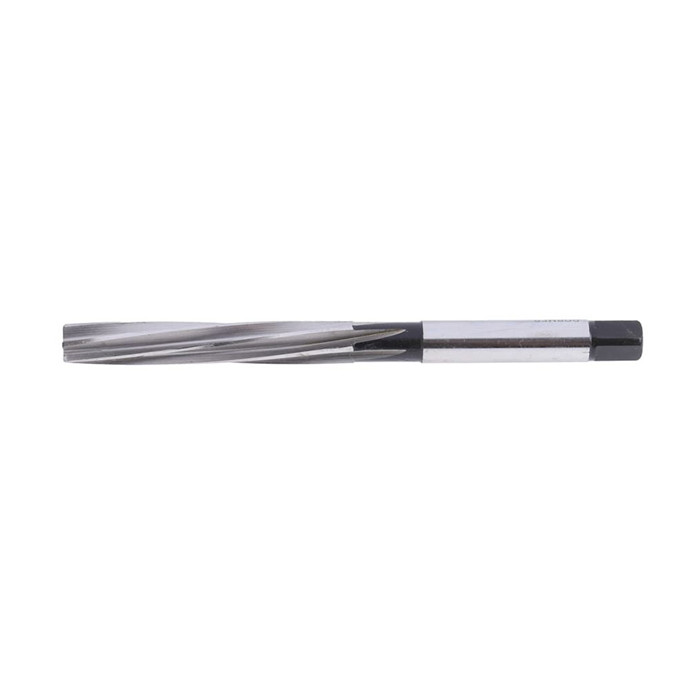indexable threading mill Manufacturer
Discover the key factors to consider when choosing an indexable threading mill manufacturer. This guide explores materials, coatings, precision, and applications, helping you select the best tools for your threading needs and optimize your machining processes. Learn about the different types of threading mills, the importance of quality materials, and how to find a reliable supplier.
Understanding Indexable Threading Mills
Indexable threading mills are cutting tools used to create threads in a single pass, offering greater efficiency and precision compared to traditional taps and dies. These mills utilize replaceable inserts, allowing for diverse thread profiles and sizes without the need for multiple tools. Selecting the right indexable threading mill manufacturer is crucial for achieving optimal performance and extending tool life.
What are Indexable Threading Mills?
An indexable threading mill consists of a tool body and replaceable cutting inserts. These inserts are designed to create a specific thread profile, such as metric, UNC, or NPT. The mill is programmed to follow a helical path, gradually cutting the thread as it rotates and moves along the workpiece. This process is controlled by a CNC machine, ensuring accuracy and repeatability.
Benefits of Using Indexable Threading Mills
Using indexable threading mills offers several advantages:
- Versatility: One tool body can accommodate various thread profiles by simply changing the inserts.
- Efficiency: Threads can be created in a single pass, reducing machining time.
- Precision: CNC control ensures accurate and consistent thread dimensions.
- Tool Life: Replaceable inserts extend the tool's overall lifespan.
- Material Compatibility: Suitable for a wide range of materials, including hardened steel, stainless steel, and aluminum.
Key Considerations When Choosing a Manufacturer
When selecting an indexable threading mill manufacturer, several factors should be considered to ensure you are getting the best possible tools for your application. These include material quality, coating options, precision, and the manufacturer's reputation.
Material Quality
The material used to manufacture the indexable threading mill body and inserts significantly impacts its performance and lifespan. Common materials include:
- Carbide: Offers excellent hardness and wear resistance, ideal for machining abrasive materials.
- High-Speed Steel (HSS): Provides good toughness and is suitable for general-purpose threading.
- Powder Metallurgy High-Speed Steel (PM-HSS): Offers superior wear resistance and toughness compared to conventional HSS.
Inserts are often made of coated carbide for enhanced performance. Always check the material specifications provided by the indexable threading mill manufacturer.
Coating Options
Coatings enhance the performance and lifespan of indexable threading mills by reducing friction, increasing wear resistance, and preventing built-up edge. Common coating options include:
- Titanium Nitride (TiN): General-purpose coating that increases hardness and wear resistance.
- Titanium Carbonitride (TiCN): Offers higher hardness and better wear resistance than TiN.
- Aluminum Titanium Nitride (AlTiN): Provides excellent heat resistance and is suitable for high-speed machining.
- Diamond-Like Carbon (DLC): Extremely low friction coefficient, ideal for machining non-ferrous materials.
Precision and Tolerance
The precision of an indexable threading mill directly affects the accuracy and quality of the threads produced. Ensure that the manufacturer adheres to strict tolerances and uses advanced manufacturing processes to achieve high precision. Look for manufacturers that provide detailed specifications and certifications for their tools.
Manufacturer Reputation and Support
Choose an indexable threading mill manufacturer with a proven track record of producing high-quality tools and providing excellent customer support. Read reviews, ask for references, and check for certifications to assess the manufacturer's reputation. Reliable customer support can be invaluable when troubleshooting issues or selecting the right tools for specific applications.
Applications of Indexable Threading Mills
Indexable threading mills are used in a wide range of industries and applications, including:
- Aerospace: Manufacturing threaded components for aircraft engines and structures.
- Automotive: Creating threads in engine blocks, cylinder heads, and other automotive parts.
- Oil and Gas: Threading pipes, valves, and fittings for oil and gas exploration and production.
- Medical: Manufacturing threaded implants and surgical instruments.
- General Machining: Creating threads in a variety of metal parts and components.
Finding the Right Manufacturer: Wayleading Tools
When searching for a reliable indexable threading mill manufacturer, consider companies like Wayleading Tools, known for their commitment to quality and precision. Wayleading Tools offers a wide range of threading solutions designed to meet the demanding needs of modern manufacturing. They focus on providing durable and high-performing tools to enhance your machining operations. Their expertise in threading technology ensures you get the right tool for the job, whether you're working with steel, aluminum, or other materials.
Types of Indexable Threading Mills
Different types of indexable threading mills are available, each designed for specific applications and thread types:
- Solid Carbide Threading Mills: Offer high rigidity and precision, ideal for machining hardened materials.
- Indexable Threading Mills: Versatile tools with replaceable inserts for various thread profiles.
- Multi-Tooth Threading Mills: Feature multiple cutting teeth for faster threading speeds.
- Internal Threading Mills: Designed for creating threads inside bores and holes.
Troubleshooting Common Threading Issues
Even with high-quality indexable threading mills, issues can arise during the threading process. Here are some common problems and their solutions:
- Poor Thread Finish: Check the cutting parameters, insert condition, and coolant supply.
- Vibration: Ensure the workpiece is properly secured and the machine is stable. Reduce cutting speed and feed rate.
- Chipping or Breaking of Inserts: Select a more durable insert grade or reduce the cutting force.
- Oversized or Undersized Threads: Verify the machine calibration and tool offset settings.
Future Trends in Threading Technology
The field of threading technology is constantly evolving, with new advancements emerging regularly. Some notable trends include:
- Additive Manufacturing: 3D printing of complex threaded components with customized designs.
- Smart Tooling: Integration of sensors and data analytics to optimize cutting parameters and predict tool wear.
- High-Performance Coatings: Development of new coatings with enhanced wear resistance and thermal stability.
Choosing the right indexable threading mill manufacturer and staying informed about the latest advancements can help you optimize your threading processes and achieve superior results.
By understanding the key factors discussed in this guide, you can confidently select the best indexable threading mill manufacturer for your needs and unlock the full potential of your machining operations.
Related products
Related products
Best selling products
Best selling products-
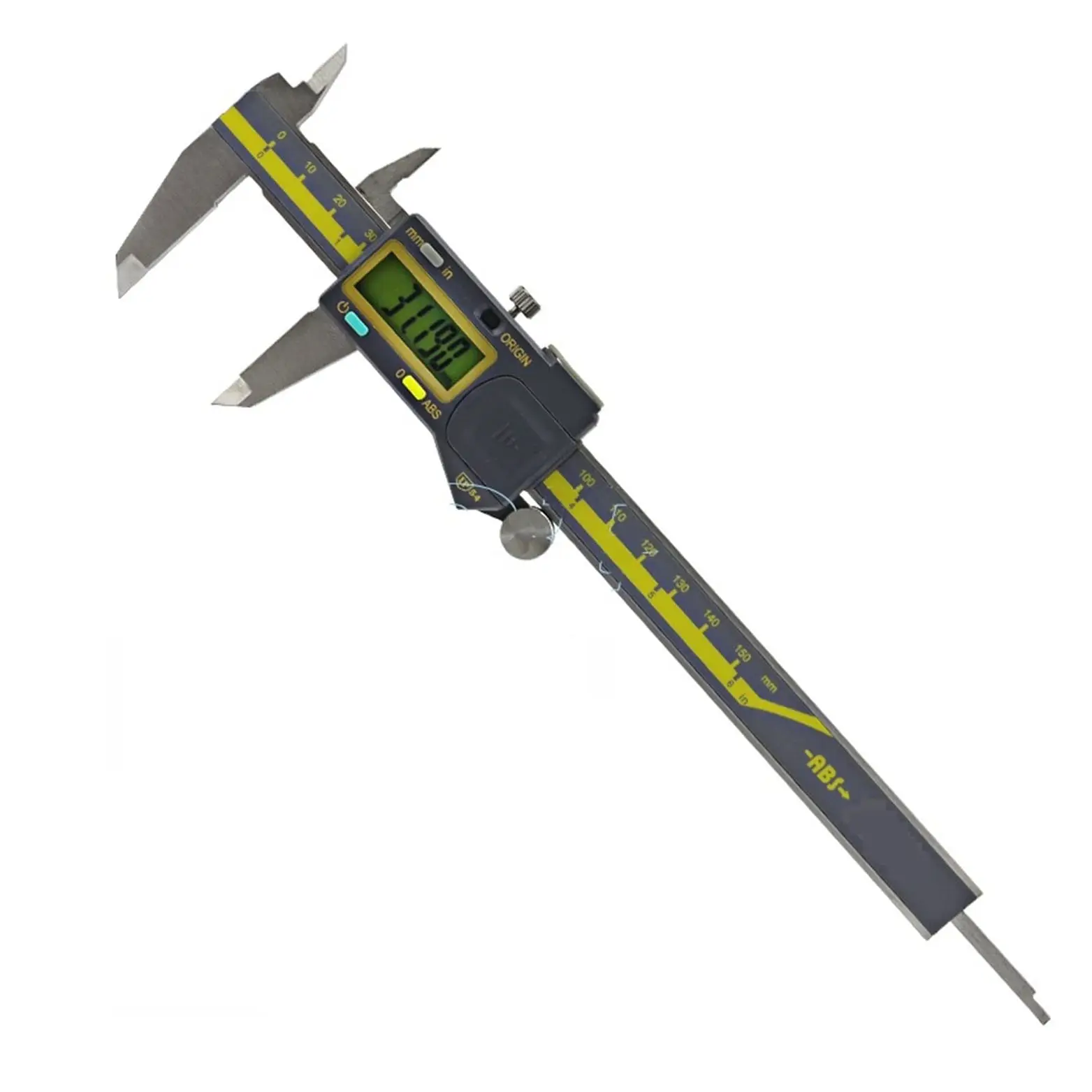 Precision IP54 Digital Caliper With Data Output For Industrial
Precision IP54 Digital Caliper With Data Output For Industrial -
 HSS Metric & Inch Woodruff Keyseat Cutter With Straight Or staggered Teeth
HSS Metric & Inch Woodruff Keyseat Cutter With Straight Or staggered Teeth -
 Inch HSS Step Drills with Straight Flute
Inch HSS Step Drills with Straight Flute -
 Depth Vernier Gauge With Stainless Steel And Monoblock Depth Type
Depth Vernier Gauge With Stainless Steel And Monoblock Depth Type -
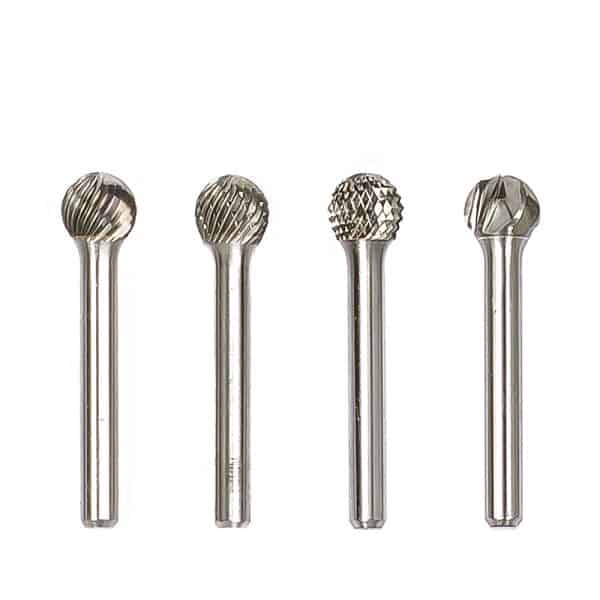 Type D Ball Tungsten Carbide Rotary Burr
Type D Ball Tungsten Carbide Rotary Burr -
 Precision Expanding Mandrel From 9/16″ to 3-3/4″
Precision Expanding Mandrel From 9/16″ to 3-3/4″ -
 Metric HSS Step Drills With Straight Flute
Metric HSS Step Drills With Straight Flute -
 DIN4971-ISO1 Carbide Tipped Tool Bit With Right And Left Hand
DIN4971-ISO1 Carbide Tipped Tool Bit With Right And Left Hand -
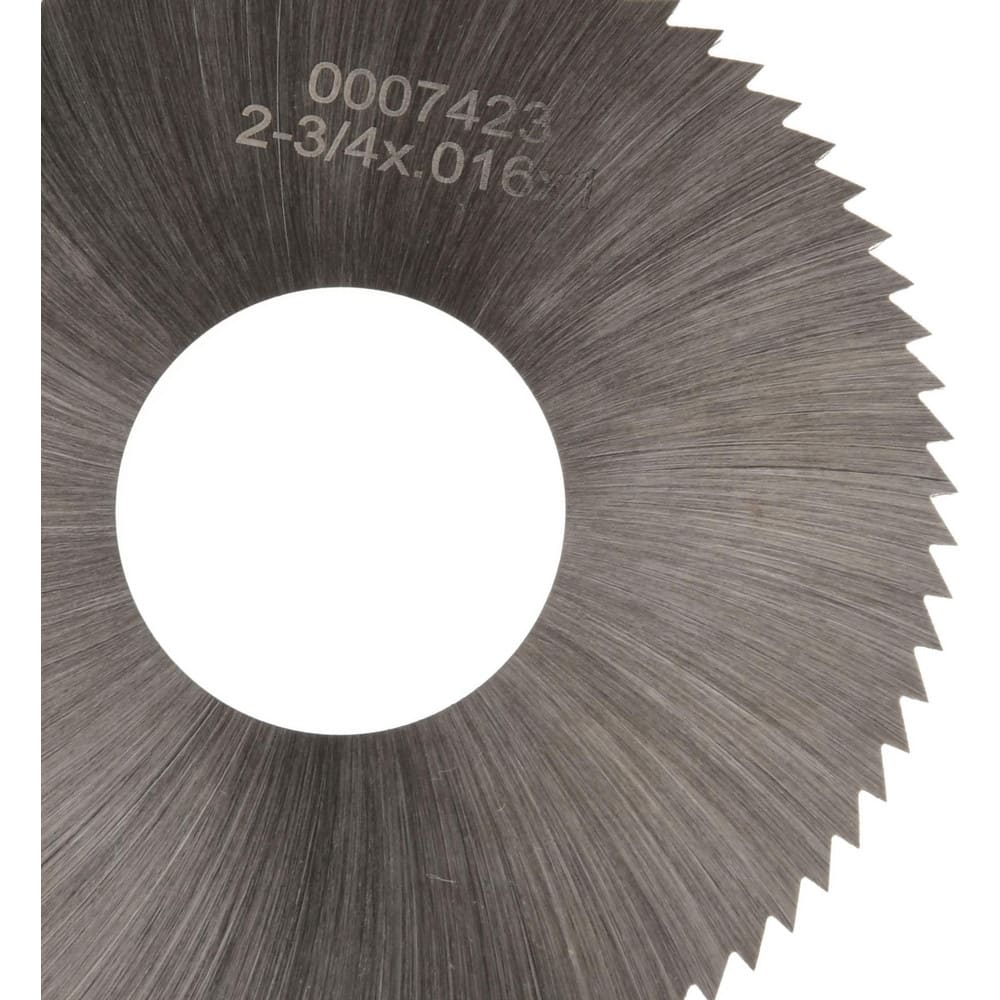 HSS Inch Plain Metal Slitting Saws For Industrial
HSS Inch Plain Metal Slitting Saws For Industrial -
 Metric HSS Annular Cutters With Weldon Shank For Metal Cutting
Metric HSS Annular Cutters With Weldon Shank For Metal Cutting -
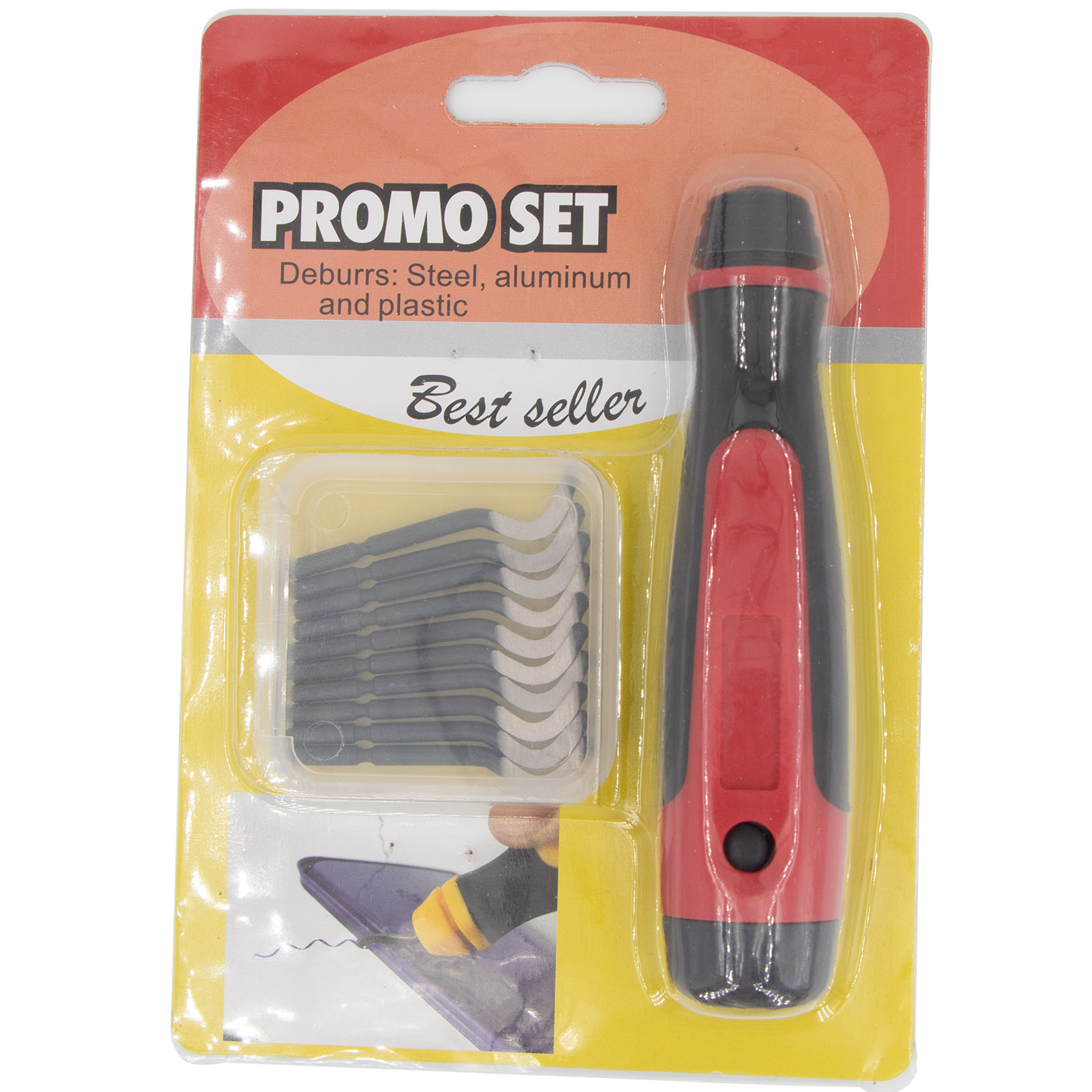 Type E Heavy Duty Deburring Tool Set With Deburring Holder And Deburring Blade
Type E Heavy Duty Deburring Tool Set With Deburring Holder And Deburring Blade -
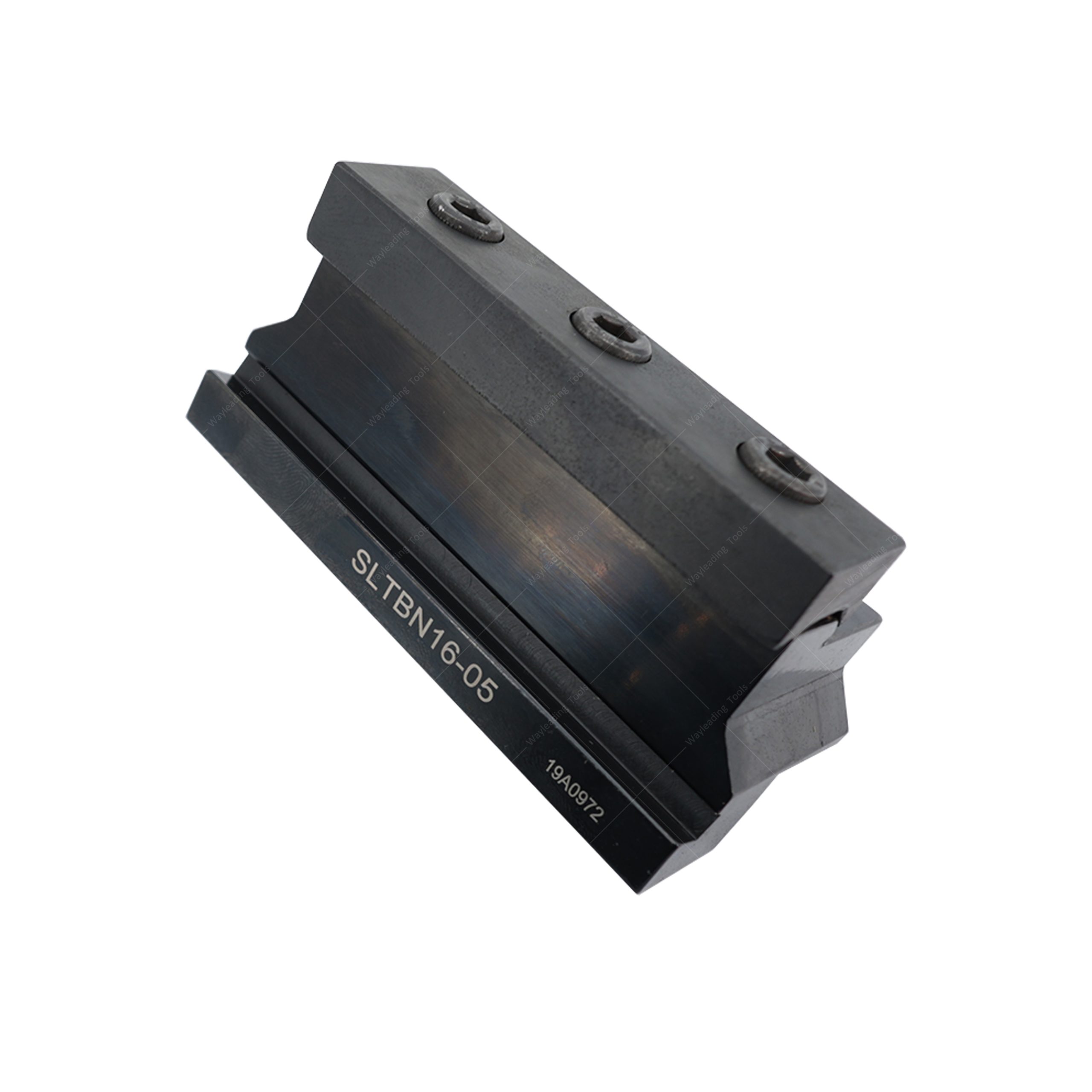 Parting & Grooving Tool Block For NCIH Blades
Parting & Grooving Tool Block For NCIH Blades







